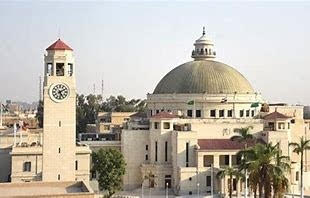It has been years now that Egypt has aspired to be a regional hub for the vehicle industry. But it was only in 2022 that the legislative and procedural groundwork was put in place for the aspiration to materialise—with an emphasis on the environment.
Binding cooperation
On 15 February 2023, the Egyptian government signed three framework agreements with local and international car manufacturers to produce environment-friendly cars in Egypt. The three companies are Nissan Egypt and Africa; Stellantis Egypt; and Al-Mansour Automotive Group.

The framework agreements aim to create a binding cooperation between the signatory parties on achieving the objectives of the National Automotive Industry Development Programme (AIDP) launched in June 2022.
AIDP provides the required framework to develop existing car assembling and manufacturing capacities, and encourages new investment in this sector.
October 2022 saw the passage of Law 162/2022 to establish a supreme council for vehicle manufacture in Egypt, and to set up a fund—operating under the Ministry of Finance—for financing the manufacture of environment-friendly cars. The law set a clear definition of the term “environment-friendly vehicles” as vehicles that do not produce fuel emissions harmful to the environment and those which produce low fuel emissions that are not too harmful to the environment; the Ministry of Environment is to place the criteria which determines that.
Minister of State for Parliamentary Affairs Alaa Eddin Fouad said that the legislation aimed at turning Egypt into a regional hub for vehicle manufacture in Africa and the Middle East.
The signatories
Prime Minister Mostafa Madbouly, who attended the 15 February signing ceremony in Cairo, stressed the government’s keenness on developing the automotive industry in Egypt, especially the manufacture of environment-friendly cars.
Representing the Egyptian government at the signing were Amr Noureldin, legal advisor to the CEO of the General Authority for Investment and Free Zones (GAFI); al-Shahat al-Ghatouri, representative of the Fund for Eco-friendly Car Manufacture; and Gomaa Madani, Head of the automotive industry unit at the Ministry of Trade and Industry.

From the car companies’ side, Michael Whitefield, Chairman of Nissan Africa South and Managing Director of Nissan Egypt; Hisham Saeed Hosni, CEO of Stellantis Egypt; and Ankush Arora, CEO of Al-Mansour Automotive, signed on behalf of their companies.
From the Cabinet were Prime Minister Mostafa Madbouly; Finance Minister Mohamed Maait; Transport Minister Kamel al-Wazir; State Minister for Military Production Mohamed Salah El-din; Minister of Public Business Sector, Mahmoud Esmat; and Minister of Trade and Industry, Ahmed Samir.
Cabinet ministries do their bits
Minister of Finance Mohamed Maait said that the fund for financing environment-friendly vehicles would work to support that industry, and would digitise the procedural course of the AIDP. It would determine the incentives due to each manufacturing plant basing on four criteria: local added value, the value of investment, annual production volume, and environmental qualifications of the vehicle motor produced.
According to the Minister of Trade and Industry, Ahmed Samir, AIDP relies mainly on the private sector as an engine for development. The government for its part, he said, provides a suitable environment to support the long term prosperity of the automotive industry through providing manufacturers with detailed guidelines for approval; accreditation; training technicians and participants in executive programmes; and the incentives granted for investment, local added value, production volume, and reduced emissions. He said the Ministry would conduct field inspections on the manufacturing plants, and would work to link the local industry with global system of production and trade.
Amr Noureldin of GAFI explained that both GAFI and the Supreme Council for the Automotive Industry would work together to place and approve policies and strategic plans needed for the long-term development of the industry, and follow up on their implementation. GAFI would also coordinate with the parties involved to put a general framework for legislative and administrative reform, to ensure an investment friendly climate in the automotive industry. It would supervise the process of equipping the industrial zone in Port Said—where the automotive industry would kick off—with the needed infrastructure and facilities, Mr Noureldin explained. GAFI, he said, would also follow up with relevant authorities to ensure that the infrastructure and superstructure supporting electric cars are in place. It would also promote the marketing of electric vehicles, and the shift from fossil fuel cars to EVs.
Vote of confidence
Representatives of the three automotive companies lauded the official launch of the AIDP. They voiced their confidence that it was the right way to go if Egypt is serious about developing the automotive industry in general and supporting the production of environment-friendly vehicles in specific.

Mr Whitefield of Nissan said that the swift implementation of the programme would contribute significantly to all value-added chains of the industry. He said Nissan was proud to call Egypt home for some two decades. Today, he said, “Nissan is extending its cooperation with Egypt to develop and grow the car industry to benefit our workers and staff, clients, and the whole community.”
Al-Mansour Automotive’s Mr Arora remarked that AIDP represented an integrated and comprehensive policy for the automotive industry and the industries feeding it, providing thus a stable system compatible with international standards. Mr Hosni of Stellantis said that the newly signed agreement represents an impressive continuation of Stellantis’s 50-year presence in the Egyptian market.
Watani International
22 February 2023















